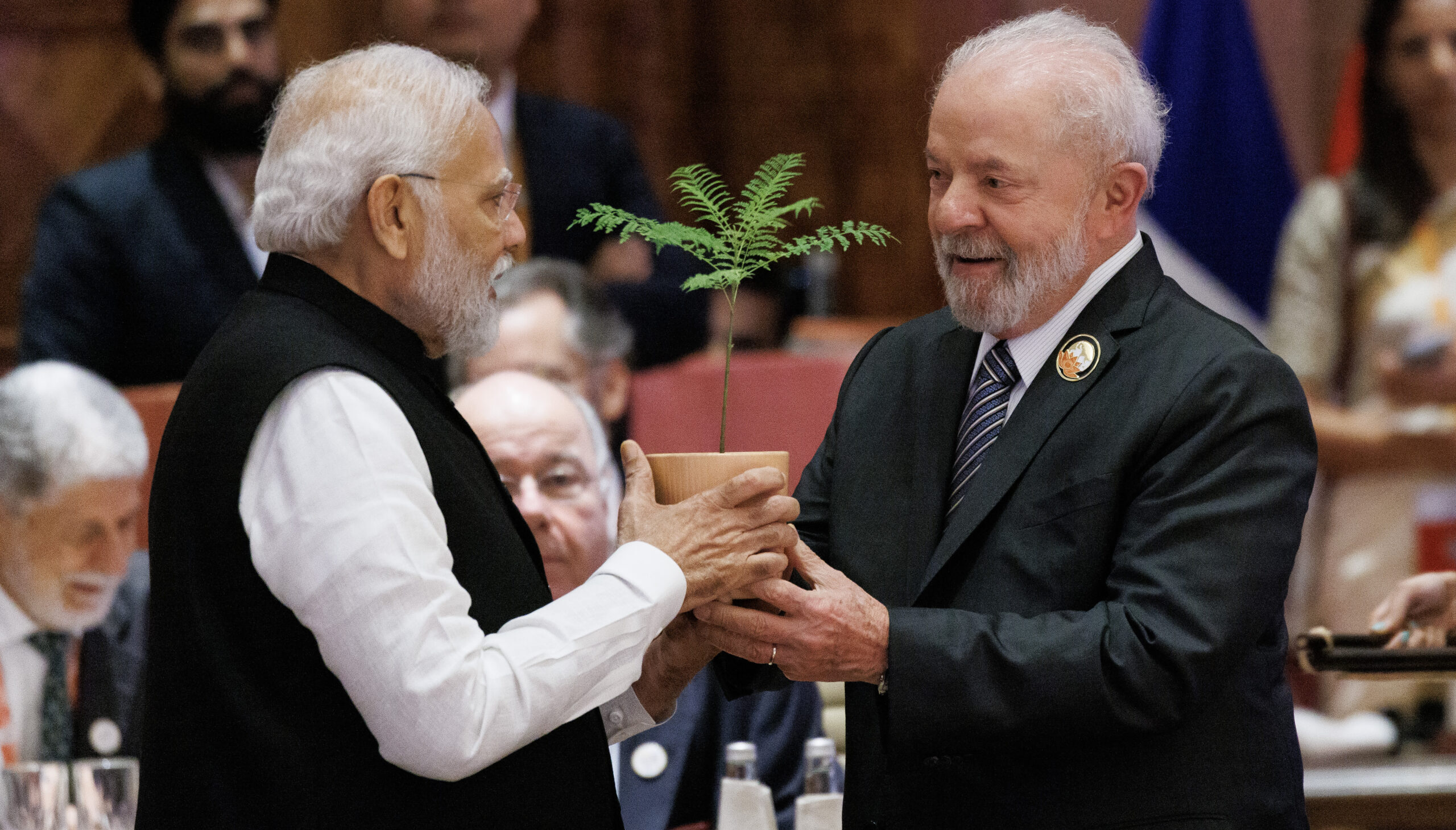The standout event from the G20 meeting this past weekend in New Delhi was the agreement on a joint statement on Ukraine signed by Western leaders and Russia. The statement avoided direct criticism of Moscow’s role in the war, and was no doubt signed with some reluctance by Western leaders. The wording of the statement may even provide a blueprint for future peace negotiations.
Western leaders agreed to sign the statement because they did not want to alienate India, which was hosting the event. As the West wakes up to the reality of a rapidly changing world, with the Brics alliance adding six new members last month, it is starting to see the need for realpolitik. India has become key to the emerging strategy because, although the country styles itself as the leader of the Global South, it is not firmly in the Russia-China camp.
These dynamics also explain other developments at the summit. The African Union — a continental grouping encompassing 55 member states that came into being in 1999 — has been added to the G20 in much the same way as the EU represents its member states. The inclusion of the African Union was suggested by Indian Prime Minister Narendra Modi in May.
Finally, there were the calls to increase the size and scope of World Bank lending to developing countries. Ahead of the summit, President Biden called for an expansion of $25bn, with the potential to grow another $100bn if pledges from other countries could be secured. On Saturday, a joint statement was signed that pledged to “mobilise more headroom and concessional finance to boost the World Bank’s capacity to support low and middle-income countries”.
Notably the statement also seemed to point in the direction of changed criteria for lending, stating that the World Bank should “undertake comprehensive efforts to evolve their vision, incentive structures, operational approaches and financial capacities”. This may be the beginning of a recognition of a need for pragmatism at the World Bank which, in early August suspended lending to Ghana because its anti-LGBT law goes against the bank’s values.
India is playing its role as a balancing power extremely well. It is keeping one foot in the Western camp and one in the Brics+. Its goal seems to be to maximise the power and extract as much for the Global South as possible and, in that regard, it appears to be succeeding. Western powers really have no choice but to play along: if they don’t, they fear that countries like India, and those in the African Union, will jump ship and go all in on the Brics+ alliance.
Some in the West are convinced that they can peel India away from the Brics+ bloc, with recent reports suggesting that India’s preparatory planning for a potential US-China conflict over Taiwan is a sign that India might join the US in containing China. This is highly unlikely to be the case, as China is now India’s second largest and fastest growing trade partner. While India and China have ongoing border disputes, the country has no serious interest in Taiwan and would be unlikely to risk economic collapse by picking sides.
What we saw play out at this year’s G20 summit is a blueprint for the emerging multipolar world, where countries and regions must jockey for power and influence against one another. In such a world, the Western powers will have to stop assuming that they can dictate terms and even moralise to other countries about what values they should hold. In a world of geopolitical competition, it is only the fittest that survive.











Join the discussion
Join like minded readers that support our journalism by becoming a paid subscriber
To join the discussion in the comments, become a paid subscriber.
Join like minded readers that support our journalism, read unlimited articles and enjoy other subscriber-only benefits.
Subscribe